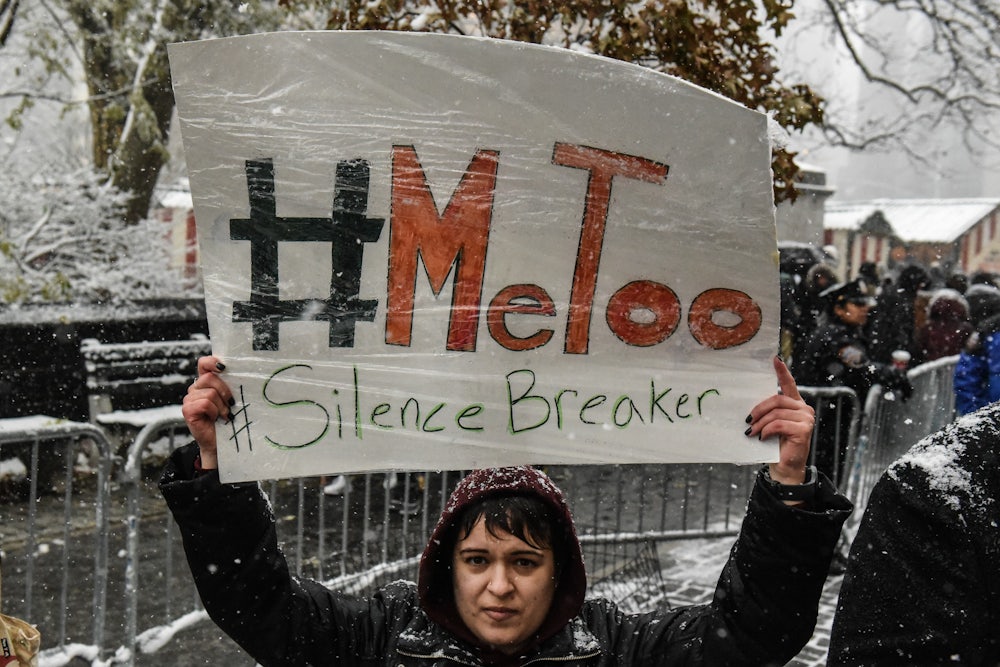Friday, October 5, is the first anniversary of The New York Times publishing its groundbreaking investigation of Harvey Weinstein’s alleged sexual predation.
This was us, exactly a year ago today, about to push the button on the Weinstein story, unsure of what would happen next. pic.twitter.com/WNljiNySXy
— jodikantor (@jodikantor) October 5, 2018
While the #MeToo movement began before the article, it’s fair to say the Weinstein revelations gave the cause of fighting gender inequality and sexual abuse a new surge of urgency and energy. With the publication of the article, the world truly entered the #MeToo era.
Two diametrically opposed events show how #MeToo defines the era. With his full-throttle support of his Supreme Court judicial nominee Brett Kavanaugh, which includes mocking one of the women who has accused Kavanaugh of sexual assault, President Donald Trump has made himself the avatar of the #MeToo backlash.
On Friday, the president tweeted:
The very rude elevator screamers are paid professionals only looking to make Senators look bad. Don’t fall for it! Also, look at all of the professionally made identical signs. Paid for by Soros and others. These are not signs made in the basement from love! #Troublemakers
— Donald J. Trump (@realDonaldTrump) October 5, 2018
While Trump derided victims of sexual violence as “screamers” and “paid professionals,” the Norwegian Nobel Committee on Friday awarded the annual Peace Prize to two activists who have made it their life work to combat the use of rape as a weapon of war: Dr. Denis Mukwege, a Congolese doctor who treats victims of rape and Nadia Murad, a Iraqi spokesperson for the cause of those who, like herself, were raped by the Islamic State.
“Denis Mukwege is the helper who has devoted his life to defending these victims,” the Committee wrote. “Nadia Murad is the witness who tells of the abuses perpetrated against herself and others.”
